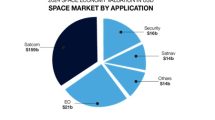
Huawei and Vodacom Tanzania have partnered to launch the DigiTruck initiative, aimed at providing digital education and skills to communities across Tanzania. This initiative aligns with the Tanzanian government’s vision of promoting innovation, inclusion and sustainable development through digital technology.
The launch event was attended by Hon. Doto Mashaka Biteko, Deputy Prime Minister of Tanzania, along with other key government officials, including Hon. Jerry William Silaa, Minister of Information Communication and Information Technology and H.E. Amb. Chen Mingjian, Ambassador of China to Tanzania.
Hon. Doto Mashaka Biteko said: “I am honoured to be here representing the President of the United Republic of Tanzania on this monumental occasion. I congratulate Huawei and Vodacom for this profound initiative that will greatly complement the government’s digitisation efforts. Data clearly indicates that as a nation we have work to do in bridging the digital divide and improving digital literacy levels. It is evident that both the government and private sector players have to come together to address this challenge. Ours is a big country, therefore I invite Huawei and its partners to consider adding more DigiTrucks so as to reach more people and expedite the digital revolution in Tanzania.”
The Hon. Jerry William Silaa reiterated the urgent need for digital and financial literacy in Tanzania to allow the nation to catch up with the ongoing digital revolution.
“The Government of the United Republic of Tanzania has placed significant emphasis on the use of ICT, including digital skills, as the foundation for the nation’s development. We believe that the future of Tanzania lies in the hands of our youth, and providing them with the necessary digital skills is our top priority. In line with this, the government has initiated various programs, including policy interventions such as the 5 years National Digital Economy Strategy of 2024, aimed at enhancing digital skills across the country. The launch of this DigiTruck project, funded by Huawei and Vodacom, will help boost our national digital capacity and enable Tanzania to rise in global rankings,” added Hon. Silaa.
The Tanzania DigiTruck programme is designed to extend digital skills training to Tanzania’s remote regions, especially youth and women. The initiative is part of Huawei’s commitment to digital inclusion through the TECH4ALL programme, which aims to drive equity and quality in education to benefit Tanzania’s remote communities and underserved groups.
H.E. Amb. Chen Mingjian stated: “Huawei and Vodacom’s DigiTruck Project is not only a key initiative to continuously deepen the friendship and trust between the peoples of the two countries, but also a practical cooperation of promoting digital inclusion and sustainable development cooperation in the digital technologies domain, to realize the vision of Tanzania’s digital transformation.”
The DigiTruck will drive across Tanzania, covering 10 regions in the first year. It will leverage innovative ICT solutions to make quality education accessible to more people, especially students in remote areas. By the end of the second year, the aim is to cover the whole country and bring the benefits of digital education to thousands of Tanzanians. Both the Vodacom Tanzania and Huawei CEOs pledged to work together to make the project a real success story in Tanzania.
This launch follows the signing of a Memorandum of Understanding (MoU) on February 15, 2024, between the two companies, which paves the way to exploring opportunities for collaboration in Corporate Social Responsibility (CSR), engagement for startup acceleration, and digital skills.
As well as Tanzania, Huawei has run DigiTruck initiatives in 18 countries, benefiting more than 93,000 people across the world.












Add Comment